Editor:
Brandon Sweet
University Communications
bulletin@uwaterloo.ca
Thoughts on Convocation and the summer ahead
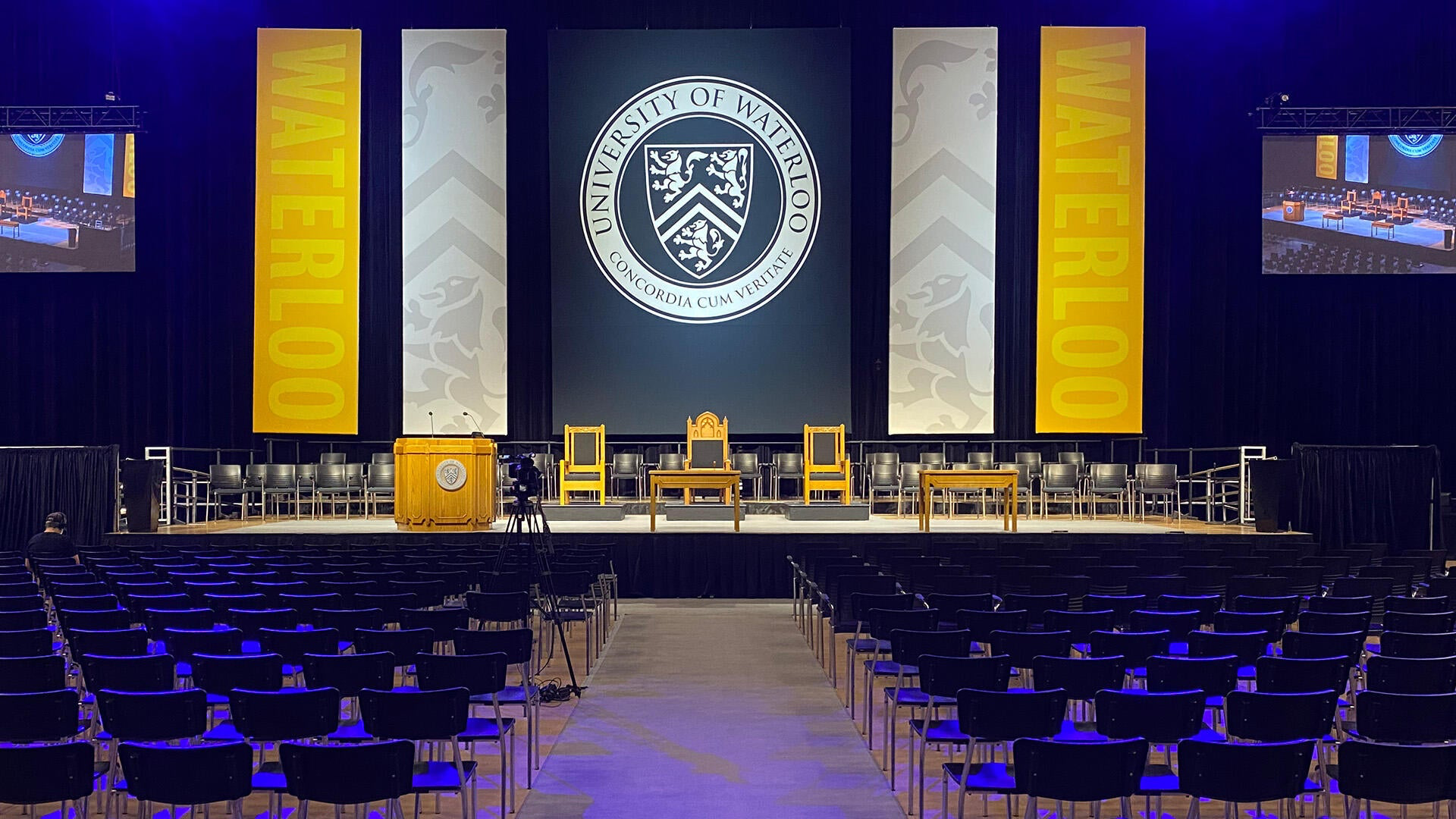
By Vivek Goel. This article was originally published on Waterloo News.
Over the past week, our community came together to mark some significant milestones in the lives of our alumni and graduating students. More than 7,000 degrees, diplomas and certificates were awarded during 16 convocation ceremonies and 4 celebrations. Never before have we celebrated convocations for three classes – from 2020, 2021 and 2022 – in one week. Perhaps most significant was the opportunity to once again connect in person with our friends and colleagues. The connections and communities that we develop on our campuses and beyond are the foundation of what makes the University of Waterloo so special.
Thank you to the many volunteers, staff and faculty who contributed to the success of convocation. Welcoming thousands of graduands, alumni and guests to our campus is no small feat, and from the conversations I had with our graduands and their families, it was very much appreciated.
These celebratory events mark our continued return to in person activities after almost two and half years of disruption by the COVID-19 pandemic. The week before convocation we were pleased to host in person the Alumni Reunion and the President’s Golf Tournament (in support of student athletes).
I truly appreciate the contributions that everyone in our community has made as we have navigated these difficult times. There have been moments that have been extremely challenging for many members of our community. You have demonstrated courage and resilience as we navigated difficult issues throughout this time.
Given current public health trends, we can look forward to a summer where we can set aside much of our pandemic worries. While, teaching and research never stop on our campuses, I encourage each of you to take some time during the summer to relax and reflect on your many accomplishments over the past year (and throughout the pandemic). Make some time for you, your friends, family and loved ones.
Thank you for everything you do for the University of Waterloo.
Have a great summer.
University of Waterloo Entrepreneurial PhD Fellowship Applications Open
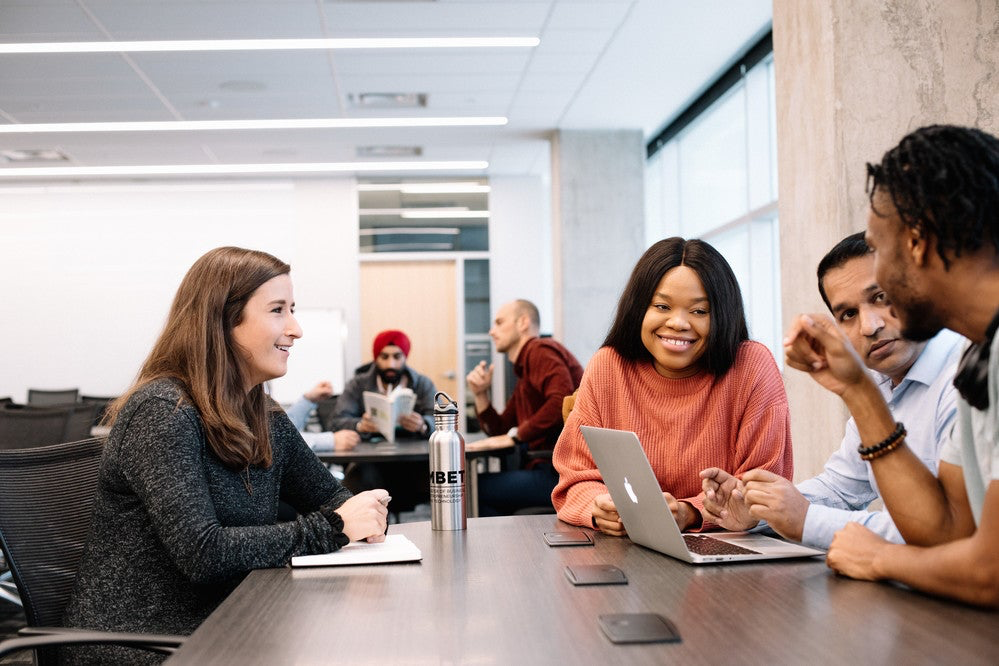
In keeping with its position as Canada’s top Innovation University, today, the University of Waterloo launches its Entrepreneurial Ph.D. Fellowship pilot. These new fellowships will support outstanding, business-minded doctoral students who are interested in commercializing their research.
Up to ten successful fellowship applicants will be enrolled in the Conrad School of Entrepreneurship and Business’ Master of Business, Entrepreneurship and Technology (MBET) part-time program. Fellowship recipients can complete the three-year part-time program alongside their regular doctoral studies, tuition-free. Normally, domestic tuition for the program would total almost $35,000.
“This exciting initiative keeps Waterloo at the forefront of entrepreneurship education and program innovation,” says Vivek Goel, president and vice-chancellor of the University of Waterloo. “As traditional academic career paths continue to evolve, these fellowships will support our talented Ph.D. students with creating research-based ventures that solve meaningful problems – bringing new technologies and solutions to market and driving economic growth.”
MBET is designed to develop students’ entrepreneurial business skills and to anchor learning in students’ own planned and evolving ventures.
“The Conrad School is thrilled to be participating this initiative,” reports Mark Weber, director. “Purpose-driven, world-class Waterloo Ph.D. students who complete a part-time MBET and have engaged and supportive supervisors will be uniquely positioned for ground-breaking successes. They will develop entrepreneurial mindsets, frameworks and business skills alongside the pursuit of commercializing their research, all with access to Conrad School’s faculty and Waterloo’s unrivalled coaching and support system.”
The Entrepreneurial Ph.D. Fellowships are competitive and open to students who will have completed at least one year of doctoral study by August 31st. Students who want to learn more about MBET and the application process can review materials on the Entrepreneurial Ph.D. Fellowship website. The three-year part-time MBET program is
delivered on Friday evenings and Saturdays approximately every three weeks for ten months a year. It is designed for those who work full-time and is therefore compatible with full-time doctoral studies for the right motivated students. The support of applicants’ advisors is a requirement for consideration.
This is a truly interdisciplinary and cross-campus initiative. Fellowship funding comes both from the university and from each faculty. This year, there are four fellowships available to Engineering students, two for Science, and one each for Arts, Environment, Math, and Health.
Completed applications are due July 18, 2022. Successful applicants will begin their part-time MBET studies in September 2022.
March in Toronto Pride with Glow
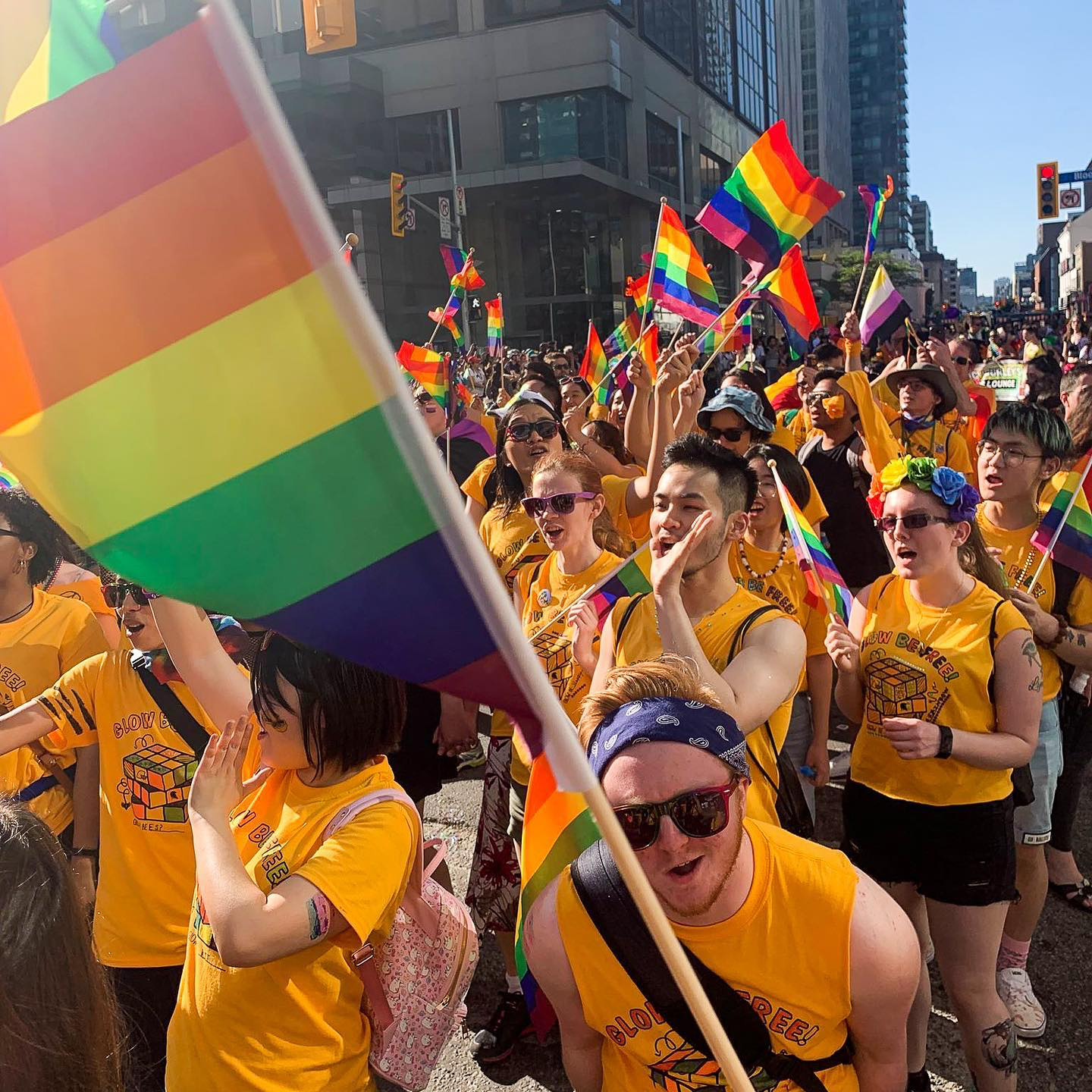
A message from Glow.
Connect with friends and celebrate the history, courage, and diversity of the 2SLGBTQIA+ community in Toronto Pride on June 26th with Glow.
Glow is a service provided by the Waterloo Undergraduate Student Association (WUSA). It is the oldest continually running university-based queer and trans group in Canada. Run entirely by dedicated student volunteers, it offers a wide variety of discussion groups, social events, advocacy opportunities, awareness campaigns, resources, and peer support.
Staff, students, and faculty are welcome to join in on the festivities by marching in the June 26th parade. Tickets are also available for alumni and guests. To participate, register here: https://ticketfi.com/event/4613/glow-goes-to-pride-2022
Registration includes round trip transportation from the University of Waterloo to Toronto, a Glow Pride t-shirt, snacks, and a water bottle. The last day to register is Wednesday, June 23.
We look forward to seeing you there!
Undergraduate student Daekun Kim receives 2022 Jessie W.H. Zou Memorial Award
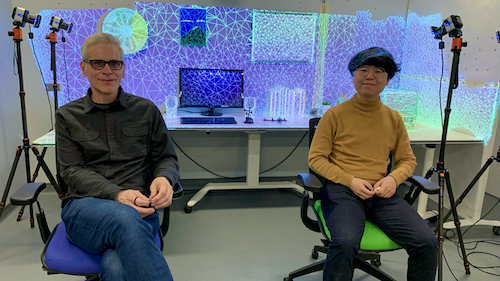
Student Daekun Kim with his advisor Professor Daniel Vogel. Photo credit: Krista Sharpe, CTV Kitchener.
This article was originally published on the School of Computer Science website.
Daekun Kim, a third-year software engineering student, has received the 2022 Jessie W.H. Zou Memorial Award for Excellence in Undergraduate Research. Established in 2012, the $1,000 annual award recognizes excellence in research conducted by an undergraduate student in the Faculty of Mathematics. The prestigious award is typically conferred to a student in his or her final year of study, but in extraordinary cases it has been awarded to undergrads in earlier stages of their programs who have been exceptionally innovative and productive researchers.
Daekun is precisely that kind of awardee. His research excellence and productivity are abundantly evident in the studies he has conducted with his advisor, Professor Daniel Vogel, most notably his contributions to a project on virtual reality depth perception and another that extends mouse interactions seamlessly from a computer desktop to the surrounding environment.
Virtual reality depth perception
As virtual reality — or VR for short — has grown in popularity in commercial applications and academic research, guidelines and best practices in VR interaction design are becoming increasingly important. One aspect that makes designing for VR different from many other mediums is user depth perception. Depth perception is significantly more important in designing VR interactions because VR occurs in real three-dimensional spaces.
Raycasting — a laser-pointing technique for interacting with targets — is a popular method of interaction for tasks such as menu selection. While much of the knowledge from previous non-VR work on 2D pointing tasks can be translated to VR, it is unclear how depth perception affects raycast target selection. Design guidelines have recommended that targets be placed one to two metres away from the user, even though there is no empirically validated evidence for that choice.
Daekun investigated whether there is a significant effect of depth perception on raycast selection of planar targets in VR. His research revealed that target depth and depth cues do not affect VR raycast selection performance in all measures, contrasting findings in previous research. His findings demonstrate that the choice of target depths and depth cues can be changed according to design needs without sacrificing the selection performance or workload.
“The VR depth perception project began as an idea proposed by one of my PhD students, but it was Daekun who worked diligently to make it happen and expand its scope,” Professor Vogel said. “He did every aspect of the work, including data analysis and writing the full paper. He plans to submit the research to a top conference in human-computer interaction later this year.”
Everywhere Cursor
Spatial augmented reality — or SAR — is a method to render digital content directly on surfaces in real environments, typically by using projection mapping. SAR can cover surfaces and objects with illusionary textures for many applications. But SAR can also be used subtly to augment real surfaces and objects selectively with 2D surface-mapped digital information, essentially turning every surface in a space into a computer display.
Extending the display space of traditional desktop computing and making it pervasive and integrated into the surrounding environment is a compelling use for surface-mapped SAR. The computer mouse is familiar to everyone who has used a desktop computer. Using a mouse to interact with objects and surfaces in a room could enable a natural integration of desktops with the surrounding environment. The goal is to create a mouse technique for SAR that behaves the same as a cursor does on a desktop computer’s screen. Using this technique, you could for example print a document by dragging a file from your computer’s screen to a laser printer on the other side of the room.
Daekun’s technique — which he calls Everywhere Cursor — employs a novel geometry-based cursor movement, which produces a consistent and smooth cursor mapping behaviour from desktop computers. Daekun compared geometry-based movement enabled by this technique with existing SAR mouse techniques and found that it achieves 29 per cent to 60 per cent improvement in precision and accuracy for trajectory-based tasks like tracing.
“Daekun’s exceptional technical skills in 3D graphics methods have been critical, but even more important are his intelligence, diligence and ability to discover novel solutions to open research problems,” Professor Vogel said. “He developed a fully immersive SAR desk centred around a novel method he invented for a mouse-controlled cursor that can literally move anywhere. He took this project all the way to an accepted short paper and poster for the late-breaking work track at the 2022 ACM Conference on Human Factors in Computing Systems. He then made major refinements to his technical methods, ran a controlled experiment, and wrote a full paper.”
Senate meets today and other notes
The University's Senate meets today at 3:30 p.m. This will be the governance body's last meeting before September. Among the agenda items:
- A motion to approve Julian Surdi as the Graduate student representative on the Senate Executive Committee, term to 30 April 2023;
- A motion to endorse the Executive Committee’s Senate Governance Review Report and its recommendations;
- A motion to approve the following Faculties joining the Collaborative Aeronautics Program (CAP), effective 1 September 2022: Environment: Master of Arts in Geography – Aeronautics; Master of Science in Geography – Aeronautics; Master of Environmental Studies in Geography – Aeronautics; Doctor of Philosophy in Geography – Aeronautics. Health: Master of Science in Kinesiology – Aeronautics; Doctor of Philosophy in Kinesiology – Aeronautics. Mathematics: Master of Mathematics in Applied Mathematics – Aeronautics; Doctor of Philosophy in Applied Mathematics – Aeronautics.
- A motion to approve updating the MEng in Electrical and Computer Engineering degree requirements to include one new Graduate Specialization in Business Leadership, effective 1 September 2022;
- A motion to approve a direct entry Co-operative program/option to the MEng in Electrical and Computer Engineering program., effective 1 September 2022;
- A motion to approve adding a new Master’s Research Paper with Internship study option to the Master of Environmental Studies in Social and Ecological Sustainability, effective 1 September 2022;
- A motion to approve changing the PhD and MSc program names to align with the following recent department and school name changes, effective 1 September 2022:
- "Department of Kinesiology" to the "Department of Kinesiology and Health Sciences"
- "School of Public Health and Health Systems" to the "School of Public Health Sciences"
- A motion to approve the discontinuation of the coursework study option from Master of Mathematics in Computer Science and the Co-operative Program, effective 1 September 2022; and
- A motion to approve the inactivation of the Honours Chemistry, Biobased Specialization, effective 1 September 2023.
The President's report will include a strategic plan thematic spotlight on Advancing Research for Global Impact.The Vice-President, Academic & Provost's report will include a Teaching Assessment Process update.
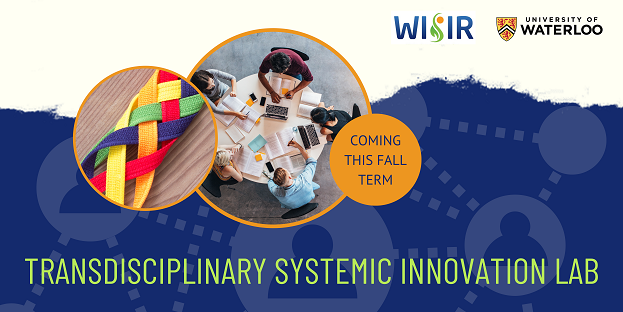
Are you instructing a course at the University of Waterloo this fall? Looking for ways to spice up your students’ engagement in your course material? You might like to learn more about an upcoming research project by the Waterloo Institute for Social Innovation and Resilience (WISIR). Join the info session next Thursday June 23 to learn more about this Fall’s transdisciplinary, participatory lab. This research is funded by a Learning Innovation and Teaching Enhancement (LITE) Grant administered by the Centre for Teaching Excellence and the Associate Vice-President, Academic’s Office. If you have any questions, please contact WISIR Innovation Lab Manager Meg Ronson, mronson@uwaterloo.ca
.
A Retirement Open House for Linda Beaulieu, who has served at the University for 23 years, will be held Thursday, June 23, 2022 from 12:00 p.m. to 2:00 p.m. in E2-1772.
Link of the day
When and Where to get support
Students can visit the Student Success Office online for supports including academic development, international student resources, immigration consulting, leadership development, exchange and study abroad, and opportunities to get involved.
Instructors looking for targeted support for developing online components for blended learning courses, transitioning remote to fully online courses, revising current online courses, and more please visit Agile Development | Centre for Extended Learning | University of Waterloo (uwaterloo.ca).
Instructors can visit the Keep Learning website to get support on adapting their teaching and learning plans for an online environment.
Course templates are available within your course in LEARN to help you build and edit your content and assignment pages quickly.
The following workshops, webinars, and events are offered by the KL team (CTE, CEL, ITMS, LIB):
-
Scholarship of Teaching and Learning (SoTL) Methods – self-directed, continuous self-enrollment course in LEARN.
-
Independent Blended Course Design (iBlend) - self-directed, continuous self-enrollment course in LEARN.
-
Copyright Overview for Waterloo Instructors and Staff - self-directed, continuous self-enrollment course in LEARN.
-
Independent Remote Course Design Essentials (iReCoDE)- self-directed, continuous self-enrollment course in LEARN.
-
Supporting Student Mental Health (for Instructors) – self-directed, continuous self-enrollment course in LEARN.
Supports are available for employees returning to campus. Visit IST’s Hybrid Work and Technology guidelines and workplace protocols to assist with the transition.
The Writing and Communication Centre has virtual services and programs to help undergrads, grad students, postdocs and faculty members with academic writing.
- Meet with writing advisors in one-to-one appointments to brainstorm, draft, revise, and polish. No time for an appointment? Try email tutoring for undergrads.
- Beat isolation and make writing progress at weekly Virtual Writing Cafés for grad students and faculty or PJ-Friendly Writing Groups for Undergrads.
- Take an online workshop or apply to our popular Dissertation Boot Camp program.
- Faculty can request custom in-class workshops for their courses, or the WCC can facilitate any existing workshops for student groups.
- Course-integrated support available. Attention faculty and instructors: The application form for Writing and Communication Centre course-integrated support is now available online. We offer five unique support streams for your courses including synchronous and asynchronous workshops and monitored discussion boards.
Co-op students can get help finding a job and find supports to successfully work remotely, develop new skills, access wellness and career information, and contact a co-op or career advisor.
The Centre for Career Action (CCA) has services and programs to support undergrads, grad students, postdocs, alumni, and employees in figuring out what they value, what they’re good at, and how to access meaningful work, co-op, volunteer, or graduate/professional school opportunities. Questions about CCA's services? Live chat, call 519-888-4047, or stop by our front desk in the Tatham Centre 8:30 a.m. to 4:30 p.m., Monday to Friday.
Drop-in to Warrior Virtual Study Halls on Wednesdays from 5:30 p.m. to 7:00 p.m. Come together in this virtual space to set goals and work independently or in groups each week.
Renison's English Language Institute continues to offer virtual events and workshops to help students practice their English language skills.
If you feel overwhelmed or anxious and need to talk to somebody, please contact the University’s Campus Wellness services, either Health Services or Counselling Services. You can also contact the University's Centre for Mental Health Research and Treatment. Good2Talk is a post-secondary student helpline available to all students.
The Library is open with expanded hours for access to book stacks, drop-in individual study space, bookable group study rooms, drop-in access to computers and printers, book pick-up services and IST Help Desk support. Librarian consultations, Special Collections & Archives and the Geospatial Centre are available by appointment. Full details on current services and hours are available on the Library’s COVID-19 Update webpage.
The Faculty Association of the University of Waterloo (FAUW) continues to advocate for its members. Check out the FAUW blog for more information.
The University of Waterloo Staff Association (UWSA) continues to advocate for its members. Check out the UWSA blog for more information.
The Sexual Violence Prevention and Response Office (SVPRO) supports all members of the University of Waterloo campus community who have experienced, or been impacted, by sexual violence. This includes all students, staff, faculty and visitors on the main campus, the satellite campuses, and at the affiliated and federated Waterloo Institutes and Colleges. For support, email: svpro@uwaterloo.ca or visit the SVPRO website.
The Office of Indigenous Relations is a central hub that provides guidance, support, and resources to all Indigenous and non-Indigenous campus community members and oversees the University's Indigenization strategy.
The Waterloo Indigenous Student Centre, based at St. Paul’s University College, provides support and resources for Indigenous students, and educational outreach programs for the broader community, including lectures, and events.
WUSA supports for students:
Peer support - MATES, Glow Centre, RAISE, Women’s Centre - Visit https://wusa.ca/services/wusa-peer-support to book an appointment either in person or online for the Fall term.
Food Support Service food hampers are currently available from the Turnkey Desk 24/7 in the Student Life Centre. Drop off locations are also open again in SLC, DC, DP, SCH and all residences.
Co-op Connection all available online. Check https://wusa.ca for more details.
Centre for Academic Policy Support - CAPS is here to assist Waterloo undergraduates throughout their experience in navigating academic policy in the instances of filing petitions, grievances and appeals. Please contact them at caps@wusa.ca. More information is available.
WUSA Student Legal Protection Program - Seeking legal counsel can be intimidating, especially if it’s your first time facing a legal issue. The legal assistance helpline provides quick access to legal advice in any area of law, including criminal. Just call 1-833-202-4571.
Empower Me is a confidential mental health and wellness service that connects students with qualified counsellors 24/7. They can be reached at 1-833-628-5589.
GSA-UW supports for graduate students:
The Graduate Student Association (GSA-UW) supports students’ academic and social experience and promotes their well-being.
Advising and Support - The GSA advises graduate students experiencing challenges and can help with navigating university policies & filing a grievance, appeal, or petition.
Mental Health covered by the Health Plan - The GSA Health Plan now has an 80 per cent coverage rate (up to $800/year) for Mental Health Practitioners. Your plan includes coverage for psychologists, registered social workers, psychotherapists, and clinical counselors.
Dental Care - The GSA Dental Plan covers 60 to 70 per cent of your dental costs and by visiting dental professionals who are members of the Studentcare Networks, you can receive an additional 20 to 30 per cent coverage.
Student Legal Protection Program - Your GSA fees give you access to unlimited legal advice, accessible via a toll-free helpline: +1-833-202-4571. This advice covers topics including housing disputes, employment disputes, and disputes with an academic institution.
The Graduate House: Open Monday to Tuesday 11:30 a.m. to 7:00 p.m. and Wednesday to Friday 11:30 a.m. to 9:00 p.m. We’re open to all students, faculty, staff, and community members. The Graduate House is a community space run by the GSA-UW. We’re adding new items to the menu. Graduate students who paid their fees can get discounts and free coffee.
When and Where (but mostly when)
Warriors vs. Laurier Blood Donation Battle. Join our “Waterloo Warriors” team on the Blood.ca website or app. #ItsInYouToGive
WaterTalk: A holistic approach to monitoring abrupt environmental shifts in the Kluane Lake region, presented by Emily S. Huff, Monday, June 20, 10:00 a.m., EV3 3412.
National Indigenous People's Day celebration, Monday, June 20, 10:30 a.m.
Faculty of Health Commitment Ceremony, Monday, June 20, 1:00 p.m. to 3:00 p.m., BMH courtyard.
Fault-Tolerant Quantum Computing: A Commercial Perspective, Monday, June 20, 1:30 p.m.
University Senate meeting, Monday, June 20, 3:30 p.m.
WISE Public lecture, “Decarbonization Pathways and Flexibility Requirements in the Chilean Electric Power System,”by Daniel Eduardo Olivares Quero, Tuesday, June 21, 12:00 p.m. to 3:00 p.m., In-person at Davis Centre, Room # 1302, and Virtually on Zoom.
Quantum Perspectives: Communication, Tuesday, June 21, 12 noon.
Artist Talk: On the Land, Tuesday, June 21, 12:15 p.m.
Entrepreneurial Ph.D. Fellowship Information Session Wednesday, June 22, 12 noon to 1:00 p.m., Zoom. Registration required.
Master of Taxation, Virtual Information Session, Wednesday, June 22, 5:30 p.m. To register visit www.mtax.ca.
CIHR Commercialization (CMZ) Peer Review Committee Information Session, Thursday, June 23, 12 noon to 1:30 p.m., Zoom. Speaker: Dr. Kathleen Marsman, Chair of CIHR CMZ Peer Review Committee. Registration required.
Retirement open house for Linda Beaulieu, Thursday, June 23, 12 noon to 2:00 p.m., E2-1772.
Evolutions through Graduate School and Hamiltonians, Thursday, June 23, 2:30 p.m.
Susan Aglukark: Nomad-Correcting the Narrative, Thursday, June 23, 6:00 p.m.
NEW - Entrepreneurial Ph.D. Fellowship Information Session Wednesday, June 29, 12:00 noon to 1:00 p.m., Conrad School or Zoom. Registration required.